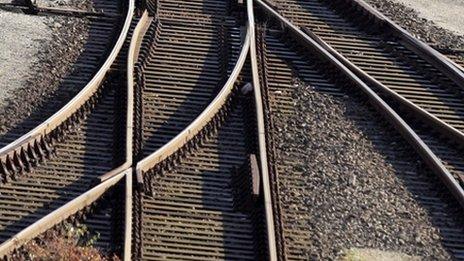Talks to avert 48-hour Tube strike adjourn
- Published
The dispute, which began in February, has already seen two separate strikes
Talks aimed at averting a 48-hour strike by London Underground workers have adjourned.
Tube workers plan to strike next week, from 21:00 BST on Tuesday until 20:59 on Thursday, as part of a long-running dispute over staff cuts.
The RMT union and Transport for London met at conciliation service Acas in an attempt to agree a deal.
The dispute is over TfL plans to save £50m a year by closing ticket offices and cutting jobs.
It says it needs to save £4.2bn by 2020.
The planned strike coincides with separate walk-outs by council workers and civil servants nationwide.
The dispute, which began in February, has already seen two separate strikes.
An Acas spokesman said: "The parties have gone away to reflect on the discussions that have taken place."

Analysis
Tom Edwards, BBC London transport correspondent
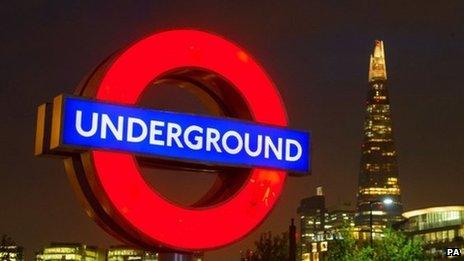
The RMT union said it had no choice but to strike after months of unproductive talks
Now the RMT has a new general secretary, it's clearer how the union intends to fight huge changes being implemented on the Tube.
All out opposition to ticket offices closures has shifted to a focus on 897 job losses and safety. London Underground's (LU) plan does mean more lone working on quieter stations and the redeployment of staff to busier ones.
It says it will mean more visible staff as they are moved from ticket offices.
While focusing on safety may chime more with passengers, having received no concessions following the last strike - it's difficult to see LU giving ground.

The last planned walkout was paused so talks could take place but the mandate to take action was still in place if the RMT thought not enough was being done.
The union said job cuts were down to 897 from 953 following talks which have now finished.
Mick Cash, the union's general secretary, said: "RMT negotiators have made every effort in the long-running talks to resolve a range of issues that impact on our members' jobs, their pay and working conditions and the safety of the services that they provide to the travelling public.
"The strike action next week is designed to force the mayor to instruct his senior officials to back away from this toxic cuts package and engage in serious and meaningful negotiations."
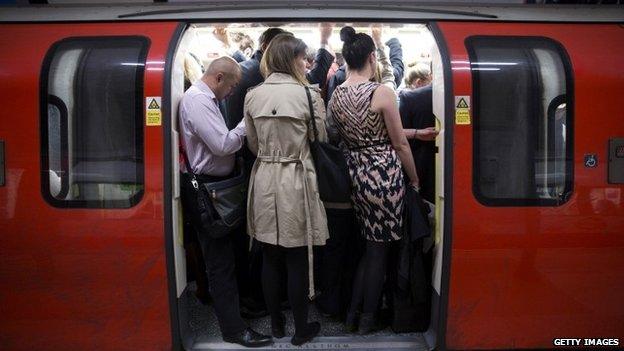
The strike will coincide with a public sector strike
Phil Hufton, LU's chief operating officer, said the strike was "pointless" and said it had more than 80 meetings with unions over the plans.
"We have adhered to every single one of the commitments we made to our staff, including delivering on our guarantee of no compulsory redundancies and offering a job for anyone who wants to stay with us, with no loss of pay.
"This action and the timing of it - to coincide with public sector strikes that have nothing to do with London Underground - is cynical in the extreme. It will only lose RMT members pay and disrupt Londoners."
The Mayor of London Boris Johnson said the dispute was "old hat" and reforms were going ahead.
He said: "I would say to the RMT, 'put this again to your members, get a new ballot' because I think loads of RMT members will be deeply unhappy that they are being asked to lose pay for no good reason."
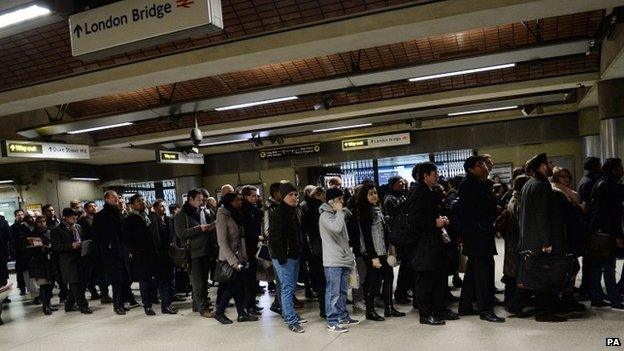
Previous strikes have caused mass disruption
Figures revealed by the London Assembly's Labour group last month suggested some Tube stations in London could lose more than half their front-line staff as a result of the cuts.
Labour's London Assembly spokesperson Val Shawcross claimed people were being "forced to pay more money for less" but a TfL spokesman said there would be "more staff visible and available to help our passengers".
TfL's plans, which it says are subject to change, show a total of 216 stations could have their staffing numbers cut from January 2015, with about 953 staff due to be shed in total across the network.
TfL said during the last RMT ticket office strike in April, half its services ran.
The Underground carried up to 57% of its usual passenger numbers, and up to four out of five stations were open, the company said.
- Published22 September 2014
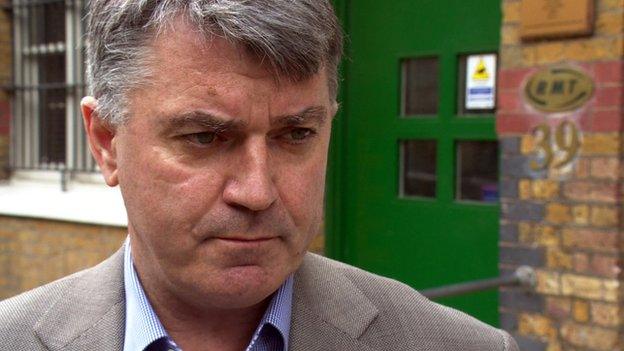
- Published18 September 2014
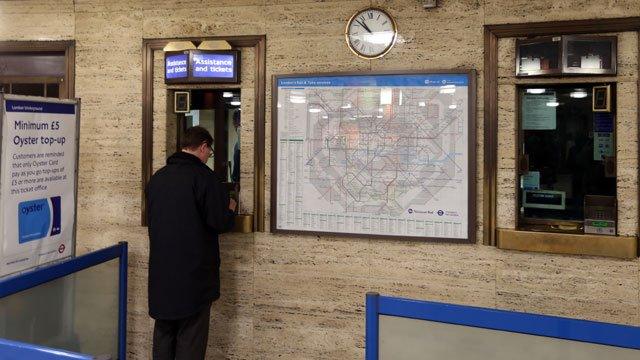
- Published28 August 2014
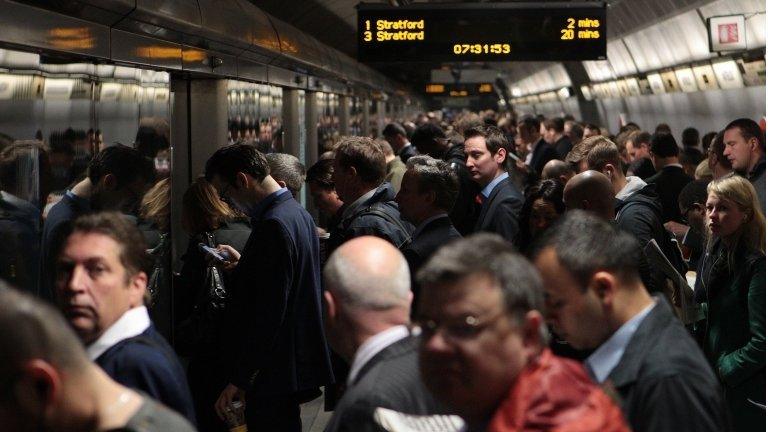
- Published30 April 2014
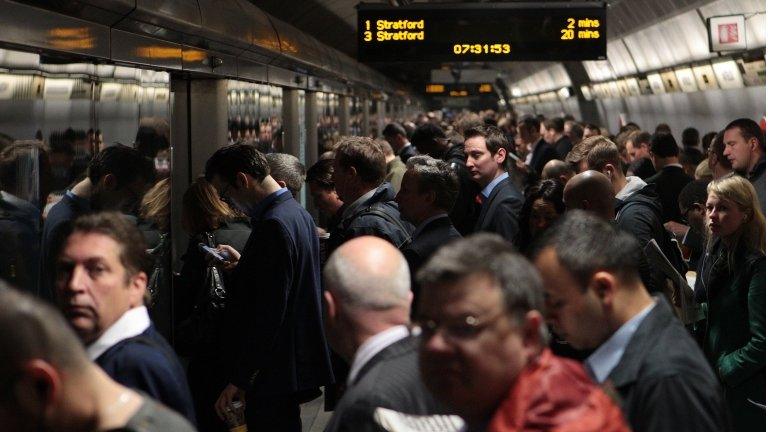
- Published30 April 2014
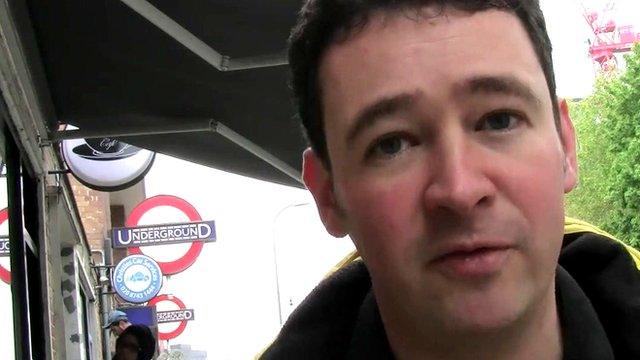
- Published6 January 2014
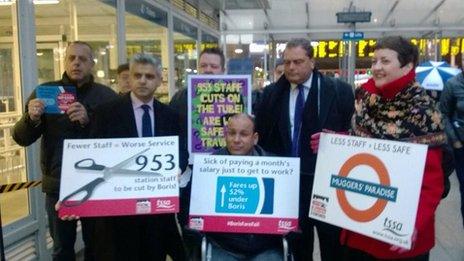
- Published21 November 2013
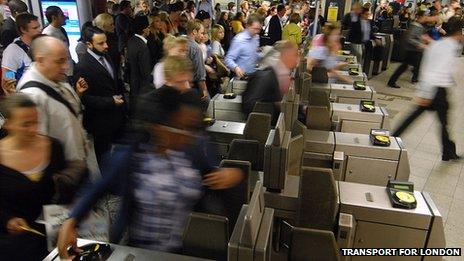
- Published21 November 2013

- Published21 November 2013
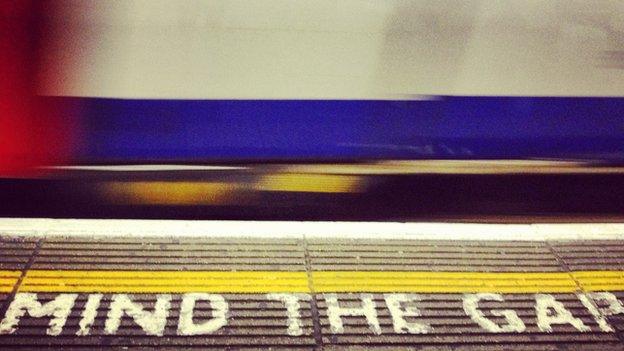
- Published20 November 2013
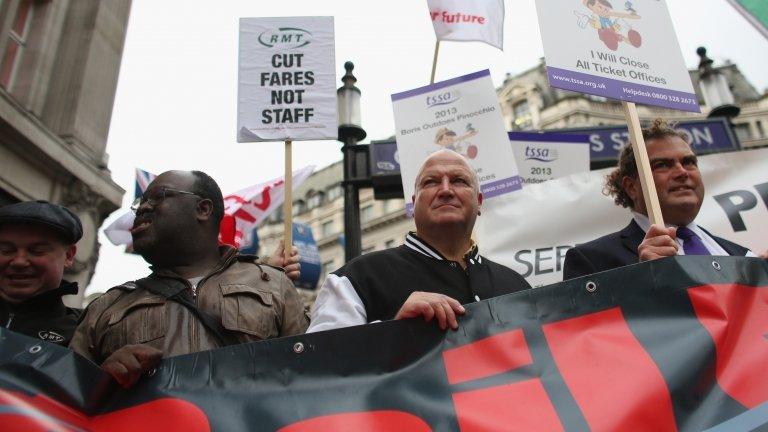
- Published12 September 2013
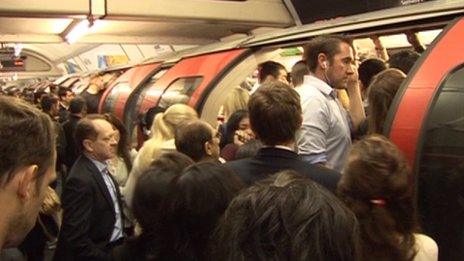
- Published26 June 2013
